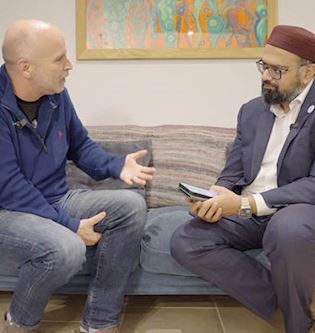Six Tips to Make the Most of Shawwal

Shawwal 2024 will begin from Maghrib on Tuesday 9th April. The day of Eid al-Fitr will be on Wednesday 10th April 2024.
It seems like Ramadan just started yesterday, and we certainly aren’t ready for this time of increased blessings and multiplied rewards to be over yet! As Ibn Rajab (rh) said, ‘How can a believer not shed tears at the departure of Ramadan, when he doesn’t even know whether he’ll be alive for its return or not?’ [Lataif al-Ma’arif]
Fortunately, we can continue to hold onto the spirit of Ramadan by making the most of the blessings of Shawwal! Here are six tips for how you can continue to draw closer to Allah in Shawwal:
1) Fast six days in Shawwal
When you have just enjoyed a delicious and nourishing meal, do you immediately jump up and rush to a different table to eat another meal? No: you savour the taste of the meal for a while afterwards and thank Allah for its blessings!
Similarly, you should savour the 'taste' and blessings of Ramadan during Shawwal by continuing to fast for a few days. Ibn Rajab (rh) said this was part of showing our thankfulness to Allah for His mercy and blessings during Ramadan.
Allah says of fasting in Ramadan, '[Allah wants] for you to complete the period and to glorify Allah for that [to] which He has guided you; and perhaps you will be grateful' [Qur'an, 2:185]. Scholars have interpreted 'and perhaps you will be grateful' as: complete your fasts in Ramadan, and then show your gratitude to Allah for Ramadan by continuing to fast in Shawwal.
Fasting in Shawwal is also similar to the practice of the Sahabah when reciting the Qur'an: when they finished reciting the whole Qur'an, they would immediately go back to the beginning and recite Surah Fatihah and the first part of Surah Baqarah. In this way, Shawwal represents a continuation of the goodness of Ramadan, instead of immediately wrapping up our efforts on the day of Eid.
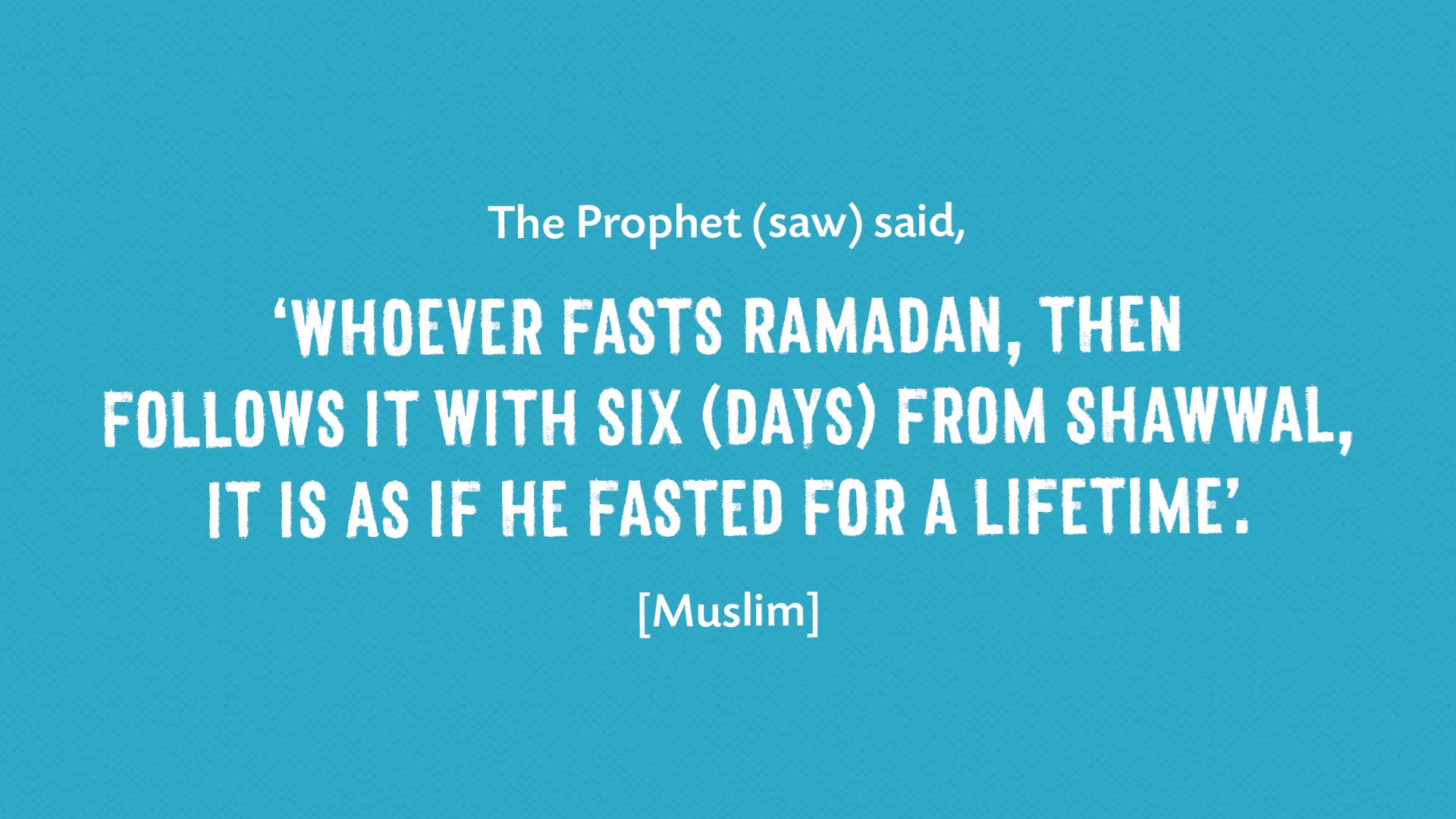
This hadith can also be translated as: 'it is as if he fasted perpetually.'
In a separate hadith, the Messenger of Allah (saw) also said, 'Whoever fasts six days after (Eid) Al-Fitr would (have) the complete (fasting) of the year.' [Ahmad] Scholars have interpreted that this is based on the ayah, 'Whoever comes with one good act shall have (the reward) of ten times the like of it.' [Qur’an, 6:160]
Thus, fasting the single month of Ramadan is like fasting 10 months, and fasting six days of Shawwal is like fasting 60 days, and the two combined equal one lunar year, alhamdulillah!
Scholars have differed over the optimum time to perform these fasts in Shawwal. Shaafi'i (rh) and others said that it is recommended to start fasting immediately after Eid al-Fitr. This is because the Prophet (saw) said, 'then follows it with six (days)', which could imply that these fasts should be observed immediately following Ramadan (excluding Eid al-Fitr).
Ahmad (rh) and others said there is no difference between fasting the six days after Eid and fasting any six days in Shawwal. The Prophet (saw) said 'six (days) from Shawwal', implying any of the six days in Shawwal.
Abd Al-Razaaq (rh) and others recommended fasting the three bright days (the 13th, 14th and 15th of Shawwal), as these are Sunnah days for fasting, as well as fasting either three days before the three bright days or three days after.
You could also fast Mondays and Thursdays in Shawwal, as these are also Sunnah days for fasting and it is thus more rewardable to fast on these days.
2) Pray your Ramadan was accepted
Ramadan was not a month the Sahabah ever said goodbye to; instead, they continued to reflect on it the whole year:
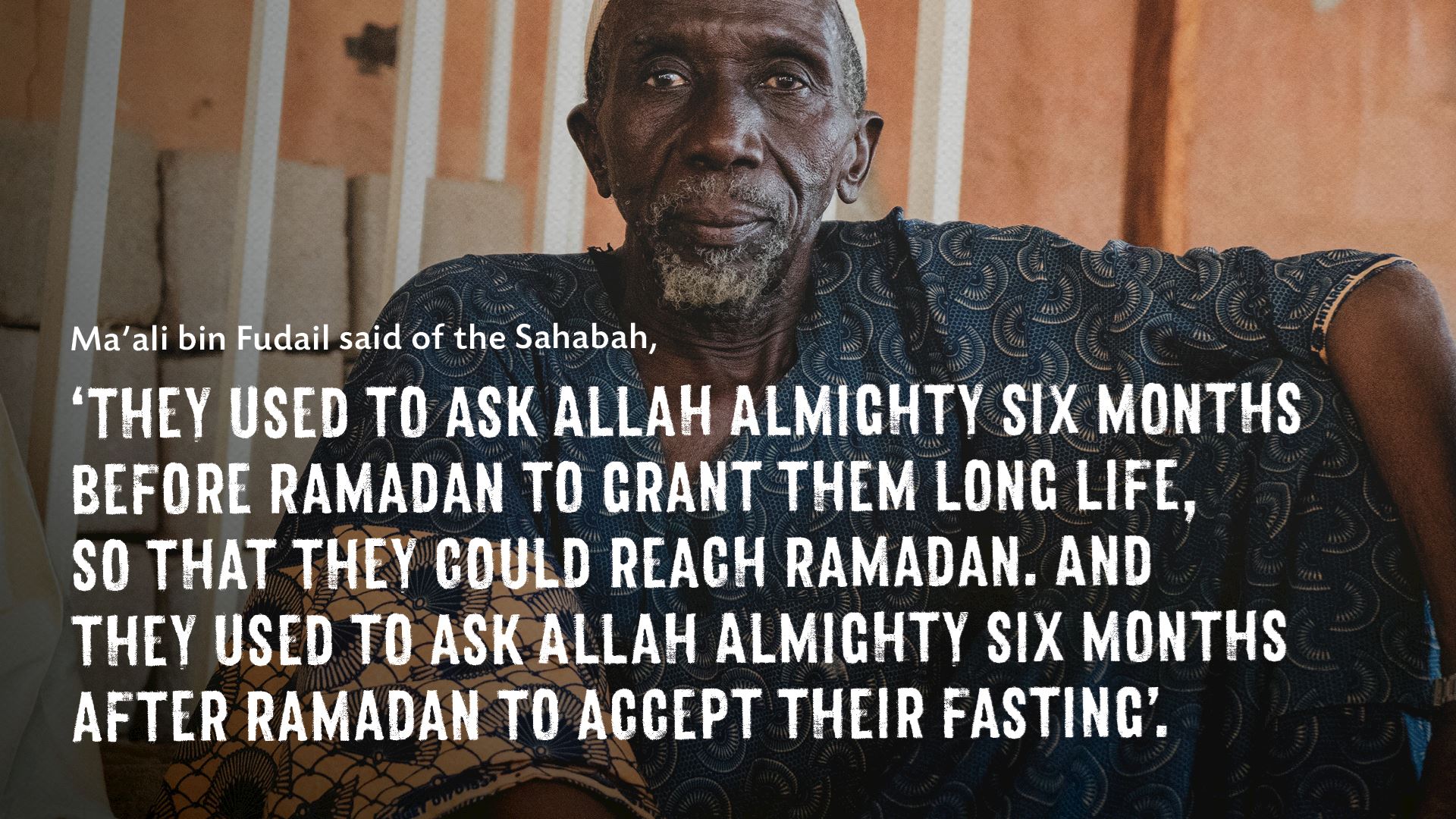
The Sahabah prayed that their Ramadan efforts had been accepted for six whole months after they'd completed Ramadan. This blessed month was a central part of their year rather than a passing event. Following their example, we should continue to pray that our fasts were accepted during Shawwal, instead of wrapping up our Ramadan on Eid day.
3) Continue your good habits
But don't just pray that Allah accepts your efforts in Ramadan - continue these efforts in Shawwal! You should know that continuing your good deeds is actually a sign that your Ramadan was accepted. Allah makes the path to goodness easier for sincere hearts. The good deeds that drew you closer to Allah in Ramadan shouldn't end when Ramadan ends.
Furthermore, Allah loves constancy in good deeds, rather than grand gestures you only make once a year:
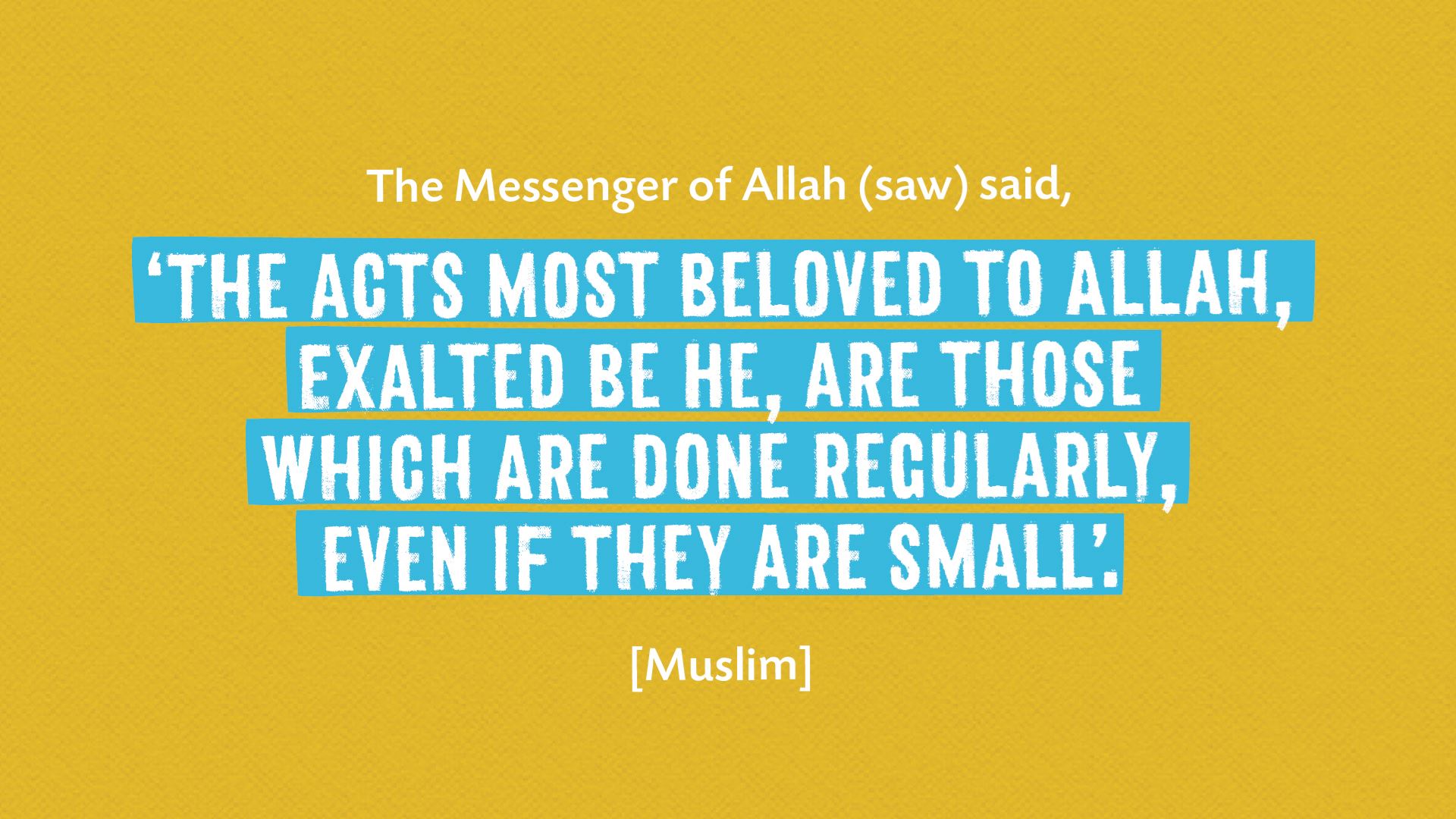
This is one of the reasons why fasting during Shawwal carries such a weighty reward. After Ramadan, most people resume 'normal life' - they stop fasting, praying at night and reading Qur'an every day. It is completely understandable that after maximising our efforts in Ramadan we feel the need to take a breather and start eating and sleeping regularly again. However, if we strive to keep up a few of our Ramadan habits, we can earn immense rewards, because Allah loves for us to do good regularly and to be reluctant to bid the atmosphere of Ramadan goodbye.
So make a list of habits you want to continue in Shawwal, such as performing voluntary prayers or setting up a regular Sadaqah payment to the needy. These habits will then become a part of your character rather than just being 'Ramadan actions'.
4) Seek forgiveness and don't fall into bad habits
Umar bin Abdul Aziz (rh) would write to the Muslim provinces around the world after Ramadan, quoting several verses from the Qur'an in his letters:
'Now is the time to repeat the words of your father Adam (as): "Our Lord, we have wronged ourselves, and if You do not forgive us and have mercy upon us, we will surely be among the losers." [Qur'an, 7:23]
'Repeat the words of Prophet Nuh (as): "And unless You forgive me and have mercy upon me, I will be among the losers." [Qur'an, 11:47]
'Repeat the words of Prophet Ibrahim (as): "And Who, I hope, will forgive me my mistakes on the Day of Judgment." [Qur'an, 26:82]
'Repeat the words of Prophet Musa (as): "My Lord, indeed, I have wronged myself, so forgive me." [Qur'an: 28:16]
'Repeat the words of Prophet Yunus (as): "None has the right to be worshipped but You, glory be to You, I have been among the wrongdoers." [Qur'an: 21:87]
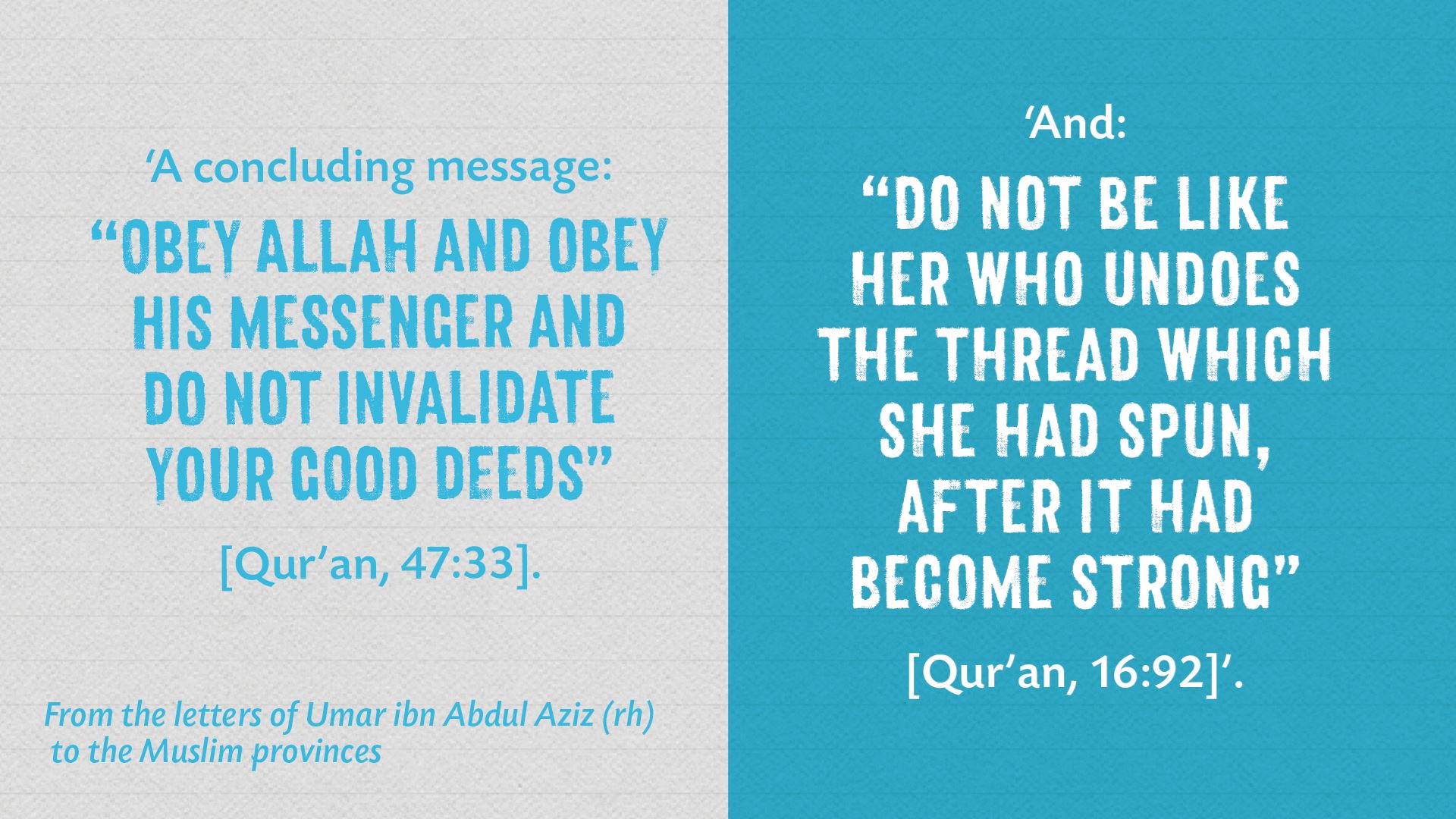
During Ramadan, you had been spinning the threads of good deeds, drawing closer to Allah with each passing day. Do not undo all of that goodness within Shawwal. Make sure you hold onto the pure intentions you had within Ramadan and don't fall back into bad habits. Keep seeking forgiveness from Allah, just as you did during Ramadan, and remember that sticking to your good intentions after Ramadan is a sign that your Ramadan efforts were accepted.
5) Worship as a group
An essential tip for sticking to your good habits is to worship as a group in Shawwal.
One of the things which makes Ramadan so special is the spirit of togetherness: we are all fasting, praying at night, making du'a and giving Sadaqah. After Ramadan passes, it can be difficult to keep doing good if you're the only one doing it. So pull your friends and family into these efforts!
Suggest to your family that you all pray together every few days or even just once a week. Attend a weekly Halaqah or Islamic class so you can seek knowledge with a group. Ask a friend to memorise some Qur'an with you so you can both motivate each other. Encourage your family to fast six days in Shawwal, so you can wake up for Sahur together and sit down for Iftar together.
In this way, you can all encourage each other and 'compete' with one another in goodness, drawing closer to Allah as a group, in sha' Allah.
6) Make use of the nights
During Ramadan, we considered any night which we didn't spend worshipping a wasted night. Now that Ramadan is over, don't forget that the nights are filled with opportunities to earn Allah's pleasure!
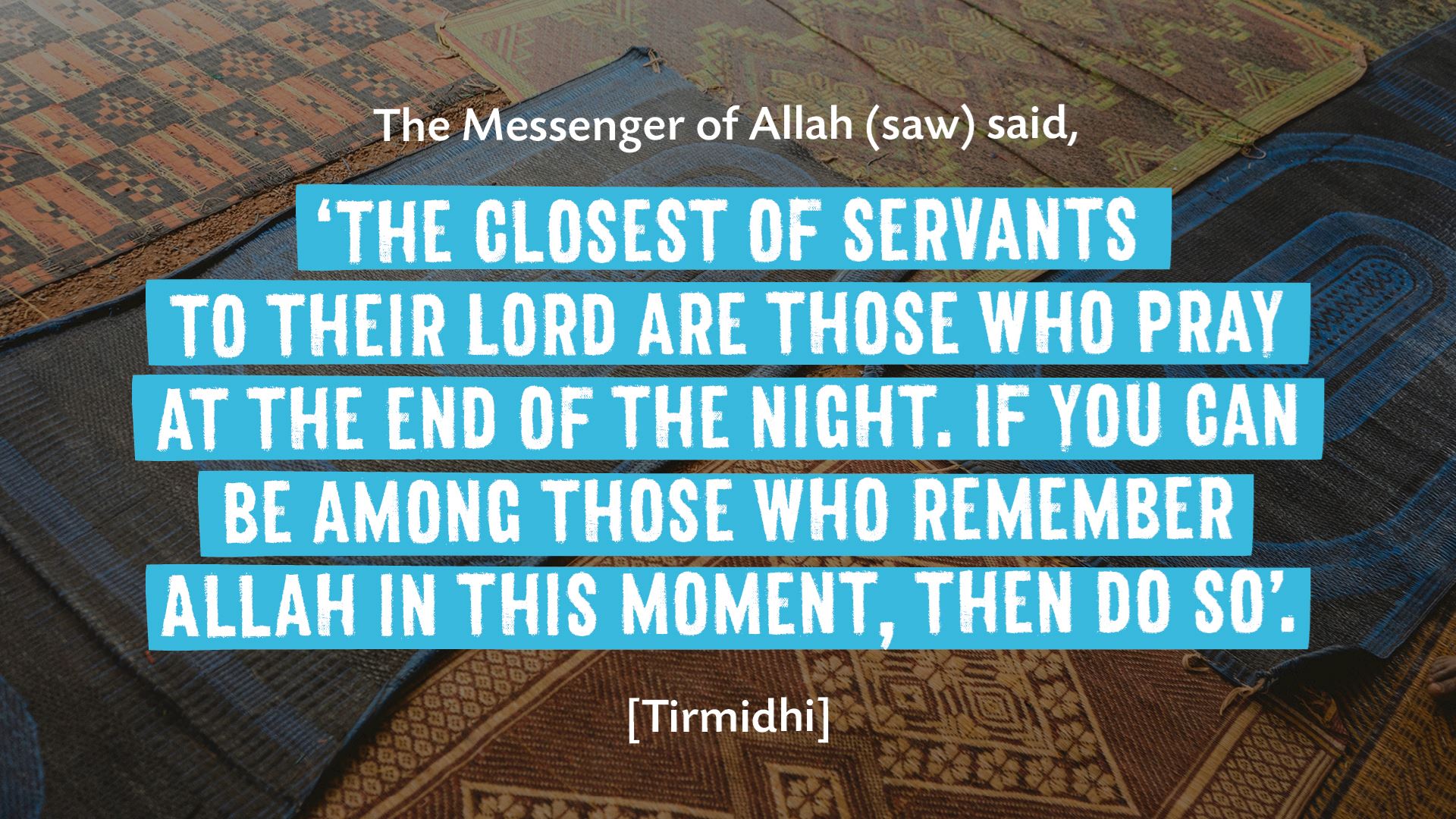
From performing night prayers, to reciting Qur'an, to making du'a, there are so many ways you can spend your night instead of sleeping the full night. Just spending ten to twenty minutes in night worship will make a huge difference to your relationship with Allah!
It takes a lot of motivation to give up some of your sleep, so why not pray with your family or even get a friend to call you at night and wake you up? In sha' Allah, this will be a blessing and mercy for you both:

Top tip: wake up fifteen or twenty minutes before Fajr begins and pray Tahajjud! That way you won't be waking up twice at night, and you can earn the high status of being a worshipper who prays at the end of the night.
To summarise our tips to make the most of the Shawwal: fast six days to earn the reward for fasting a lifetime; follow the example of the Sahabah by praying your Ramadan was accepted; continue the good habits you built in Ramadan; seek forgiveness for sins and don't fall into bad habits; worship with others to encourage and motivate each other; and don't forget to worship Allah at night.
We hope this article was helpful to you! If you want to earn a good deed in less than 30 seconds, share this article with friends and family! The Prophet (saw) said, ‘Whoever guides someone to goodness will have a reward like one who did it’. [Muslim]









